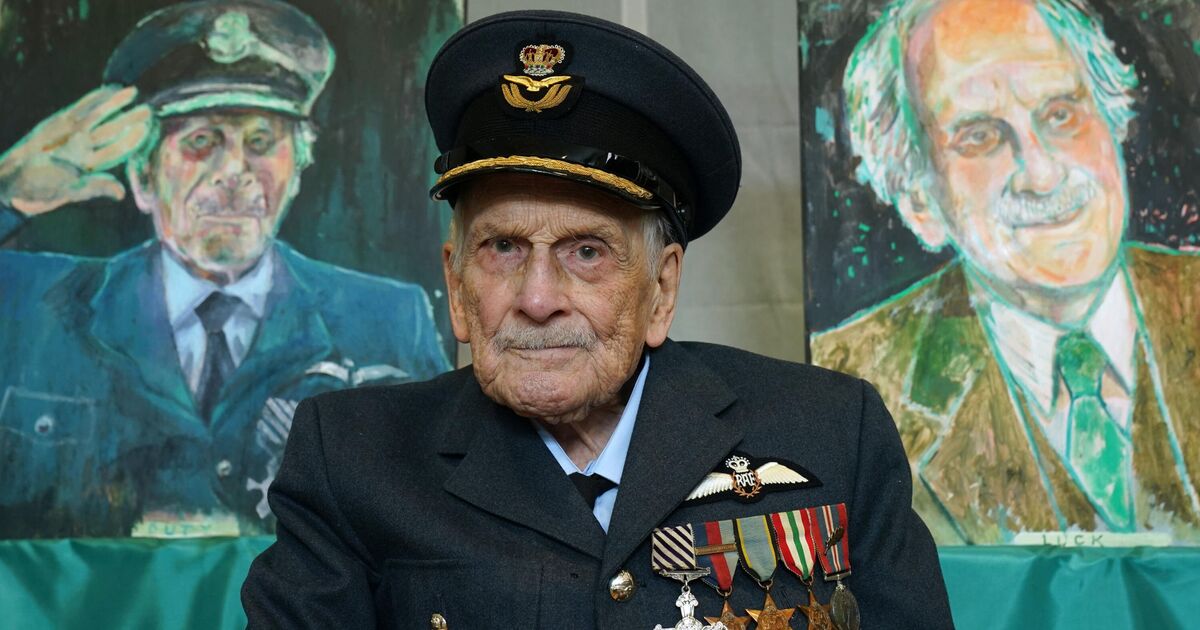|
UK no longer country heroes like Paddy Hemingway risked life to defend | UK | News The last of The Few has gone. With the death of Group Captain ‘Paddy’ Hemingway this week at the age of 105, the final link has been severed with that remarkable band of heroic RAF pilots who defeated the might of Hitler’s Reich in 1940. “Let us brace ourselves to our duties,” declared Churchill on the eve of the Battle of Britain. No group of combatants ever did their duty more triumphantly than the men of Fighter Command, who changed the course of history with their valour. But in addition to sorrow at the passing of this undaunted warrior of the air, it’s impossible not to feel a sense of profound loss at the erosion of the country he defended so bravely. Britain in 1940 was a united, well-ordered society, with a strong tradition of liberty, a stable, democratic system, a universally shared heritage, a powerful industrial base and a proud spirit of national identity. None of those features exist today in our fractured, indebted land. Nor is it meaningful to talk today of the “British character”, given the demographic revolution we are experiencing.
But there was certainly a distinct British character in 1940. Among its elements were an innate reserve, a keen sense of humour, a suspicion of authority, and an attachment to fair play. Above all, in the context of the war, a high value was placed on resilience, stoicism and fortitude in adversity. Hemingway was almost the personification of those qualities. Shot down four times, he once walked 70 miles through Belgium to return to his fighter base, despite severe shrapnel wounds to his legs. But in Britain today, toughness is giving way to victimhood, the stiff upper-lip to the tremble of anxiety. Minor setbacks are now translated into personal traumas, while ordinary human emotions are medicalised as mental health conditions. Back in 1940, there were no safe spaces aboard Royal Navy vessels or trigger warnings before Churchill’s speeches. Nothing better illustrates the courage of the wartime generation than the astonishingly low incidence of cowardice or desertion in Bomber Command, despite the lethal risks of operations against Germany. More than half of those who served in bombers were killed in action, yet less than 1% of crewmen were charged with “lack of moral fibre”. The change in the public mood over the last eight decades was thrown into sharp relief this week by Government’s proposals for welfare reform. As set out by the Work and Pensions Secretary Liz Kendall, the package of measures is extremely modest, shaving just £5billion of a social security bill that this year will cost £313billion, including pensions. Yet even her limited plan has provoked a barrage of hysteria from left-wing campaigners, activists, trade unionists and MPs, typified by the grim forecast from the radical former Chancellor John McDonnell that people “could die as a result of the cuts”. Amid all this anguish, there was little recognition that the recent explosion in welfare claims, especially for mental health and migrants, is utterly unsustainable. Sentimentality is so deeply ingrained in modern Britain that politicians are forced to tiptoe around the issue for fear of being accused of cruelty. Instead of challenging the absurd culture of entitlement, ministers continually emphasise their support to help ease claimants into the world of work. The moment has come to stop this cringing surrender. To avoid national bankruptcy, our ruling elite must show a dose of wartime courage and embrace genuine reform. That means spelling out some hard realities and taking tough decisions, like ending the £7billion Motability scheme, where subsidised top-of-the-range cars are regularly dished out to the families of benefit claimants with psychiatric disorders, or the immigration racket where foreign nationals are given welfare payments to live here without any obligation to work. A recent analysis of official figures showed that there are more than 1.2 million migrants on benefits at a cost of more than £11billion-a-year. That helps to explain why migrant numbers and welfare bills are spiralling out of control. This is not the Britain the fighter boys risked their lives to defend. Source link Posted: 2025-03-21 05:35:36 |
Polish woman, 80, faces deportation from UK after mistakenly filling in form online | Immigration and asylum
|
|
Labour peer faces cash-for-access questions – podcast | House of Lords
|
|
Molly McCann retires on the spot from UFC after brutal beating by Alexia Thainara | Other | Sport
|
|
DWP's £120,000 payment to people affected by Covid and other vaccines
|
|
Here We Are review – Sondheim’s desperate diners have a double helping of Buñuel | National Theatre
|
|
Look, no trousers! Why the ‘day knicker’ trend is growing legs | Fashion
|
|
Tourists among 4 killed in cable car crash south of Naples
|
|
UK must rebuild trade relationship with EU, says BoE boss; China-US shipments slump – business live | Business
|
|







